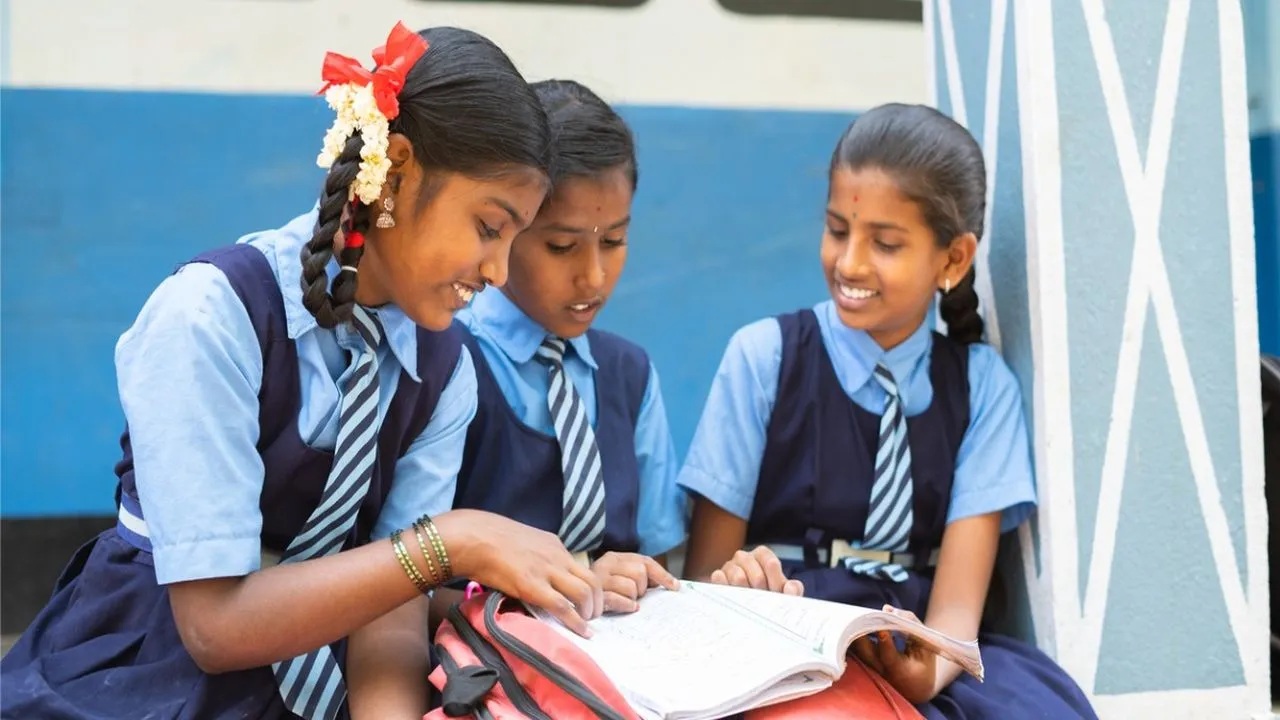Published Mar 13, 2025 | 8:00 AM ⚊ Updated Mar 13, 2025 | 8:00 AM

Kerala to roll out revised higher secondary curriculum with new textbooks
Synopsis: Even as Finance Minister Thangam Thenarasu is set to present the state’s Budget for the financial year 2025-26, government employees, teachers, and students are hoping that their long-standing demands will finally be addressed.
Tamil Nadu is widely recognised as the best-performing Indian state in governance and public service delivery. It consistently ranks high on the Human Development Index (HDI), operates one of the most efficient public welfare distribution systems, and has been praised for its sound fiscal management.
The government’s emphasis on quality education and healthcare has yielded remarkable results, including the highest Gross Enrollment Ratio (GER) in higher education at 47% and the lowest infant mortality rate in the country.
The state has also made significant strides in school education, with low dropout rates, widespread adoption of smart classrooms, and a substantial percentage of female students in higher education.
The NITI Aayog’s 2023-24 report highlights Tamil Nadu as one of the few states where all educational institutions and schools have 100% basic infrastructure.
Even the Union Government’s Economic Survey lauded Tamil Nadu’s ‘Illam Thedi Kalvi’ (Education at the Doorstep) initiative as a model for other states.
Behind these achievements are lakhs of dedicated teachers and government employees who play a crucial role in sustaining the system. However, many feel neglected when it comes to budgetary allocations.
While the government frequently announces welfare schemes and other development plans, the needs of government employees and teachers often remain unaddressed.
On 25 February, Finance Minister Thangam Thenarasu, Public Works Minister EV Velu, School Education Minister Anbil Mahesh Poyyamozhi, and Human Resource Management Minister Kayalvizhi Selvaraj held discussions with JACTTO-GEO, an organisation representing government employees and teachers.
However, employees pointed out that similar discussions took place a year ago with the same ministers and the same demands, yet no concrete steps followed. Once again, ministers assured a resolution within four weeks—echoing the assurances made last year.
M Srinivasan, General Secretary of the Tamil Nadu Government Employees’ Association, highlighted that Tamil Nadu has approximately 13 lakh government employees, including 2,25,400 school teachers and 13,000 college professors, with over 3 lakh employees directly linked to the education sector.
However, over 5.2 lakh government posts remain vacant, putting immense pressure on existing employees.
“Instead of recruiting permanent employees, the government has outsourced over 2 lakh jobs in the past four years. This affects the quality of service in critical sectors like education and healthcare,” he said.
Professor Suresh, General Secretary of the Tamil Nadu Government College Teachers’ Association, pointed out the uncertainty faced by faculty members.
“In government colleges, only 5,000 positions are permanent, while over 8,000 positions are outsourced with salaries below ₹25,000. Contractual staff are expected to perform the same duties as permanent faculty but without job security,” he explained.
In the medical sector, outsourcing is rampant. “A private company named Crystal handles contractual appointments for roles ranging from sanitation workers to medical professionals. Across government jobs, 52% of positions—about 5.2 lakh vacancies—remain unfilled,” Srinivasan added.
The shortage of teachers is particularly severe in rural areas. In remote villages like Jawadhu Hills in Tiruvannamalai, government schools often operate with just two teachers, while contractual hires are paid as little as ₹8,000 to ₹15,000 per month, and that too for only 11 months a year.
“These teachers work under precarious conditions without any benefits or job security,” Srinivasan noted.
K Aravindh Sami, a PhD student and SFI state secretary, emphasised the need for increased food allowances and improved infrastructure in government hostels.
“The current ₹1,500 monthly allowance is inadequate for quality nutrition. The government must increase hostel stipends and establish colleges in underserved areas like Thoothukudi, Natham, Kolli Hills, Thiruvaiyaru, and Ulundurpet,” he said.
Other key recommendations include:
Public universities rely on state government funding, yet financial constraints have led to revenue-generation efforts through distance education and self-financing programmes.
“The University of Madras is on the verge of being classified as a self-financing university due to lack of government support. This will increase student fees and damage its accessibility,” warned Aravindh.
The Tamil Nadu government must ensure proper funding to maintain these institutions’ status as state universities.
Beyond education, government employees across various departments face similar challenges.
“The state is increasingly relying on contract-based employment, even in critical public service sectors like healthcare and municipal administration,” Srinivasan said.
He cited Kerala and Maharashtra as examples where better job security and pension benefits have led to higher public sector efficiency and citizen satisfaction.
“Tamil Nadu should follow similar models instead of cutting costs through outsourcing and contract labour,” he urged.
As the state budget approaches, government employees, teachers, and students are watching closely, hoping that their long-standing demands will finally be addressed.
The government’s commitment to education and public service must go beyond student welfare and extend to the well-being of those who sustain these systems.
By filling vacancies, restoring benefits, and improving infrastructure, Tamil Nadu can not only solidify its position as India’s leading education hub but also ensure justice for the workforce that upholds its governance framework.
(Edited by Majnu Babu).

